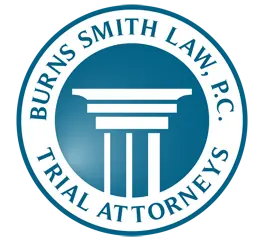Credit Card Crimes in Georgia: A Comprehensive Overview
Credit card crimes are, unfortunately, a common problem in modern society. In Georgia, as elsewhere, financial crimes involving credit cards have become increasingly complex, sophisticated, and damaging to both individuals and organizations. This article examines credit card crimes in Georgia, focusing on the unauthorized use of stolen credit cards, the misuse of company credit cards, various forms of fraud, and online credit card theft. It also explores the relevant state laws, real-world examples, penalties, and preventive strategies.
Understanding Credit Card Crime
Credit card crimes include any illegal activity involving the unauthorized use, acquisition, or manipulation of credit cards and their information. These crimes typically fall under several specific Georgia statutes, including “financial transaction card theft,” “financial transaction card fraud,” and “unauthorized use of a financial transaction card”.
The Legal Landscape in Georgia
Georgia treats credit card crimes with the utmost seriousness. Various activities—including theft, fraudulent use, and the misuse of entrusted credit—are classified as felonies under state law, carrying elevated penalties. The legal framework can be divided into several categories:
- Financial Transaction Card Theft: Taking, obtaining, or withholding a card without the cardholder’s consent
- Financial Transaction Card Fraud: Using or attempting to use a card with the intent to defraud
- Unauthorized Use: Using a card outside the confines of granted authority, such as employment contexts
The Georgia Code (O.C.G.A. §16-9-31, §16-9-33, §16-9-37) provides detailed guidance on what constitutes each offense.
Using a Stolen Credit Card
What Constitutes “Stolen” Usage?
A credit card is considered “stolen” if it is taken without the cardholder’s knowledge or consent, either physically or through illicit acquisition of account information (e.g., by skimming or phishing). Using such a card to obtain money, goods, or services—even if only attempted—constitutes a crime.
Specific Prohibited Acts
- Physically stealing a credit or debit card.
- Possessing a card known to be stolen with the intent to use or sell it.
- Receiving, buying, or transferring a stolen card.
- Cloning credit card data onto fraudulent cards.
- Even if no money is ever spent, simple possession of a stolen card with fraudulent intent is a felony.
Real-World Example
In a widely publicized case, a credit card theft ring was responsible for vehicle break-ins at Georgia state parks. Stolen cards were quickly used at stores to buy gift cards, with transactions totaling thousands of dollars and spanning multiple states. The suspects faced felony charges upon arrest, thereby illustrating the vigorous prosecution of credit card crimes in Georgia.
Penalties
- Felony charge: 1–5 years in prison
- Fine up to $5,000
For fraudulent use under $100 in a six-month period, penalties may be mitigated but still include possible jail time.
Convictions often carry long-term consequences such as loss of employment opportunities, exclusion from housing, and worsened credit status.
Financial Transaction Fraud
Forms of Credit Card Fraud
Credit card fraud in Georgia covers a wide range of deceptive practices, including but not limited to:
- Forging someone’s name or altering the card.
- Creating or encoding fake cards.
- Using revoked, expired, or altered cards.
- Using a card without the owner’s permission.
- Accepting (as a business) payments using fraudulent cards.
Digital and Online Fraud
With the rise of e-commerce, card-not-present transactions are vulnerable to information theft and fraudulent charges. Criminals commonly obtain card numbers through phishing, data breaches, or telephone scams. In some recent scams, perpetrators posed as fraud investigators to obtain security codes and make unauthorized online purchases.
Penalties
Value-based: Fraud amounting to over $100 in six months is a felony, punishable by 1–5 years in prison and up to a $5,000 fine. Lesser amounts can still trigger 1–2 years imprisonment or up to $1,000 in fines.
Additional restitution: Courts frequently order convicted individuals to compensate victims directly for losses.
Criminal record: A felony conviction impacts future employability, housing, and financial opportunities.
Defenses Against Allegations
Typical defense strategies revolve around lack of intent, mistaken identity, or showing there is no proof that the defendant had authorization for the use in question.
Misuse of a Company Card
What Is Misuse?
Unlawful or unauthorized use of a company credit card—by an employee or trusted agent—is a distinct offense in Georgia. Crucially, even if the cardholder is legitimately in possession of the card, using it for purposes outside the written, authorized limits can be a criminal act.
Examples:
- Using a company card for personal expenses (intentional or repetitive misuse).
- Charging unapproved items and falsifying receipts or explanations.
- Exceeding authority by making large or frequent purchases not permitted by company policy
In a notable Georgia case, an employee of Georgia Tech fraudulently purchased over $300,000 in personal items using college credit cards. She submitted false receipts and made fake accounting entries over several years, ultimately receiving a federal prison sentence.
Is it Always Criminal?
Not necessarily. Accidental misuse—such as an employee mistakenly using a company card—may violate corporate policy but isn’t always criminal if promptly reported and reimbursed. Deliberate or repeated misuse, especially without repayment or disclosure, can constitute embezzlement or fraud and result in criminal penalties, including termination, civil suits, or referral to law enforcement.
Summary and Takeaways
Credit card crimes in Georgia encompass a broad spectrum, from the use of stolen cards to sophisticated fraud and digital theft, as well as the misuse of company-issued credit. Georgia law treats these offenses as serious crimes with potentially severe consequences, including criminal conviction records, prison terms, restitution, and substantial fines.
Arrested or Facing Charges?
For specific advice or if you are involved in any investigation or dispute, consult a qualified attorney specializing in Georgia criminal law. We invite you to call one of our experienced credit card crimes defense lawyers at 770-956-1400.
Credits & Footnote
Image by Kris from Pixabay

